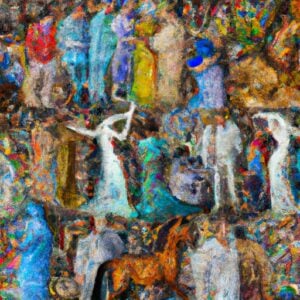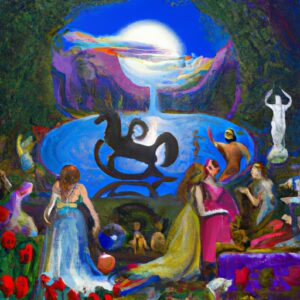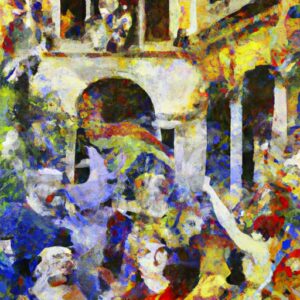Italian Christmas Vocabulary 101
Christmas is a national holiday in Italy. It is important for both believers and non-believers, who spend it having quality time with family and exchanging gifts.
It is part of a group of Holidays called le Feste, or le Feste di Natale, which starts on Christmas Eve and ends on January 6.
So, before you learn how to say Merry Christmas in Italian, it is worth spending a few seconds to learn the names of all these different holidays:
- Natale – Christmas;
- Vigilia di Natale – Christmas Eve;
- Santo Stefano – December 26, another national holiday;
- Capodanno – New Year’s Eve
- Epifania – the Epiphany, also known as The Three King’s Day, or the Twelfth Day in some Christian countries.
And now that you know their names let’s see how to make proper Christmas greetings to your Italian friends.
How to Say Merry Christmas in Italian?
If you ever need to wish your friends a Merry Christmas in Italian, the words you are looking for are: “Buon Natale!”
This phrase means “[have a] Good Christmas“, as Italians usually wish for holidays to be “good” rather than “merry” or “happy”.
As for Easter greetings, you can extend these words to the other person’s relatives and even say them in advance in case you don’t see each other before Christmas.
“Buon Natale a te e famiglia”
“Merry Christmas to you and your family”
“Se non ci vediamo prima, buon Natale a te e famiglia”
“If we don’t meet again before, Merry Christmas to you and your family”!)
When is it Appropriate to Say Merry Christmas in Italian?
In Italy, saying “Buon Natale” (Merry Christmas) is great from December 24th to 26th. But really, anytime in December works fine! People there love the holiday vibe all month long. So, whether you’re with family, friends, or even folks you’ve just met, spreading the Christmas cheer with “Buon Natale” is always a lovely gesture during this festive time in Italy!
Other Useful Words Related to Christmas in Italy
Ok, so Buon Natale is the right way to translate “Merry Christmas” to Italian. But is it the only Christmas greeting that you can make to people?
Of course not.
Here is a list of all the main Italian Christmas greetings.
Buon Natale – variants
First of all, there are a couple of main variants of Buon Natale that it’s good to know.
They all replace buon (merry) with other words for “happiness”.
For instance, you can wish somebody un Natale pieno di gioia, meaning “a Christmas full of joy“, or un felice Natale (“a happy Christmas“).
In short, anything positive will do. Happiness, love, laughter, hope… the only limit is your imagination.
Ti auguro un Natale pieno di felicità e speranza.
I wish you a Christmas full of happiness and hope.
You can also tell someone “Passa un buon Natale“, which is Italian for “have a merry Christmas”.
Auguri / Auguri di buon Natale
Auguri is a general greeting that goes well for every celebration.
It literally just means “greetings“. If you want to be more specific, you can say “auguri di buon Natale“.
Buone Feste
Buone feste is Italian for “Happy Holidays”. It generally implies that you’re wishing the other person a Happy New Year too.
You can also say “passa delle buone Feste“, which means: “have some nice Christmas Holidays“.
Buon Natale e Felice Anno Nuovo
And since we mentioned it, how do you wish both a Merry Christmas and a happy new year in Italian? You know… like in the song.
In that case, the right phrase is: “Buon Natale e felice anno nuovo!”
This is pretty much everything you need to know to wish someone a Merry Christmas in Italian.
And since we’re here, how do you respond to such greetings when you’re the one receiving them?
How to Respond to Merry Christmas in Italian?
At Christmas, we’re all better – and as you can expect from such a holiday, you can’t just reply to Buon Natale and the other Christmas greetings with just a grazie.
You’d be rude if you did.
In the holiday dedicated to sharing and giving, you should at least add altrettanto (“likewise” / “same to you”).
A: “Ehi Mario, buon Natale!” B: “Grazie, e altrettanto!”
A: “Hey Mario, merry Christmas!” B: “Thank you, same to you!”
Alternatively, you can add anche a te / anche a lei / anche a voi. They all mean “you too“, but they apply to different situations:
- anche a te – use it if you are well acquainted with the other person;
- anche a lei – to be used in formal situations;
- anche a voi – use it when you’re replying to a group of people.
This is how to respond to someone saying Buon Natale to you.
How do you Say “Santa” in Italian?
In Italian, Santa Claus is referred to as “Babbo Natale.” This translates directly to “Father Christmas.” When you’re in Italy or speaking with Italian speakers during the festive season, using “Babbo Natale” is the perfect way to talk about Santa Claus.
How is Christmas in Italy unique?
Christmas in Italy is a symphony of traditions that’s uniquely enchanting. The celebrations start early in December and stretch into January, blending religious customs with joyous festivities.
One of the standout elements is the Nativity scene, or ‘presepe,’ found in homes, churches, and piazzas across the country.
Italian families gather for lavish meals on Christmas Eve, indulging in a feast of fish and other delectable dishes.
However, the true magic happens on Christmas Day when children eagerly await gifts from La Befana, a friendly witch who visits while riding her broomstick.
The holiday spirit lingers well beyond December 25th, reaching its pinnacle during the January 6th celebration of Epiphany.
Useful Italian Vocabulary for the Holidays
As I wrote above, Christmas Holidays in Italy start on December 24 and end on January 6. There is a popular saying about their end that is nice to know about:
È arrivata l’Epifania, che tutte le feste si porta via.
The Epiphany has come, and all the Holidays are gone (literally: ” It has come the Epiphany – which takes away all the holidays”)
But maybe we’re looking too much forward this time. For now, let’s focus on preparing for the Holidays.
May you spend them with people you love and have a nice time. And when you come back, you’ll find a new list of Italian words to learn on this blog.
So there you have it, this is How to wish someone a Merry Christmas in Italian”!
Buone Feste anche a te! 🙂










One Response
Thanks for sharing this! It’s always fun to learn how to say holiday greetings in different languages. Merry Christmas to you!